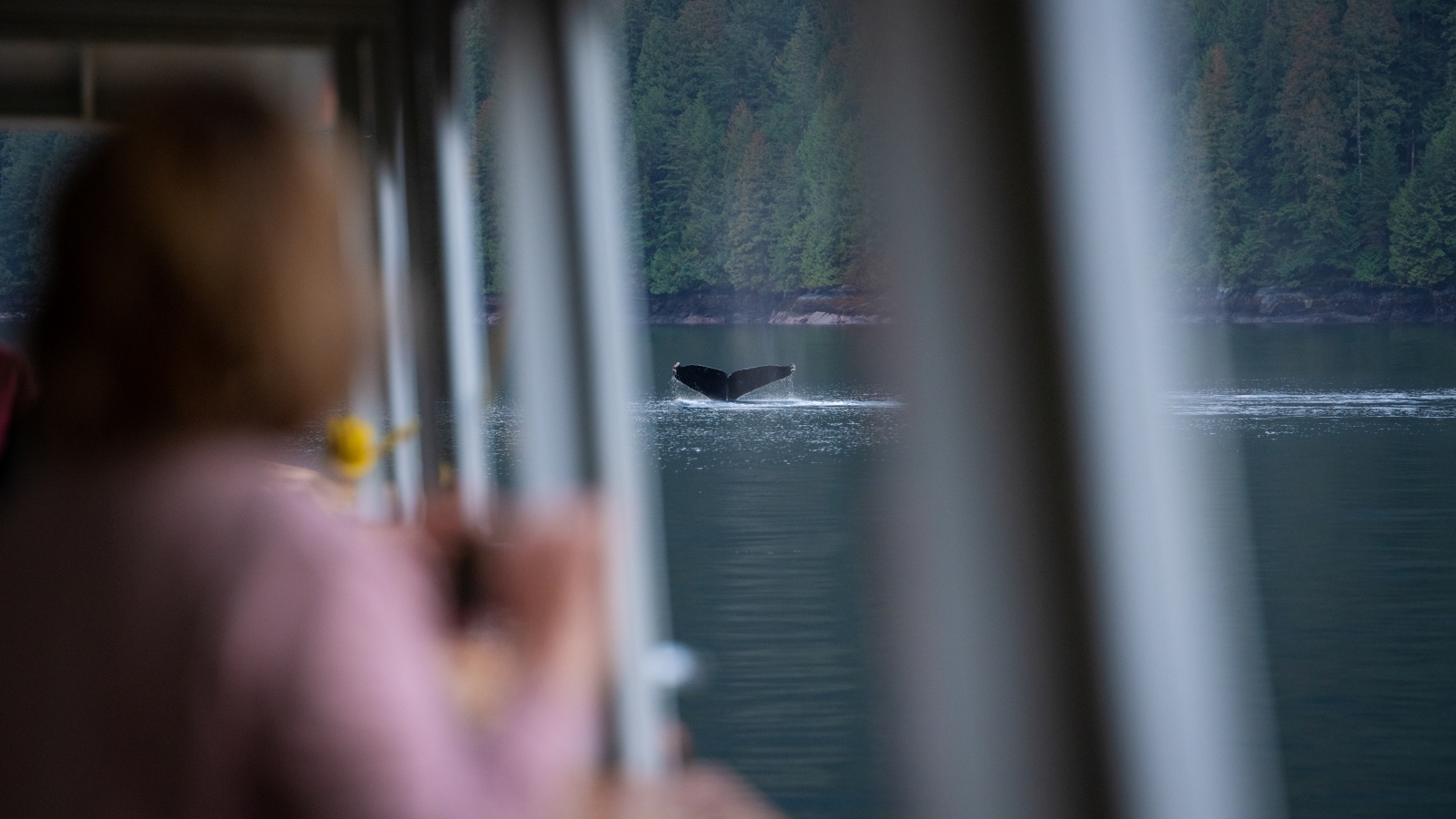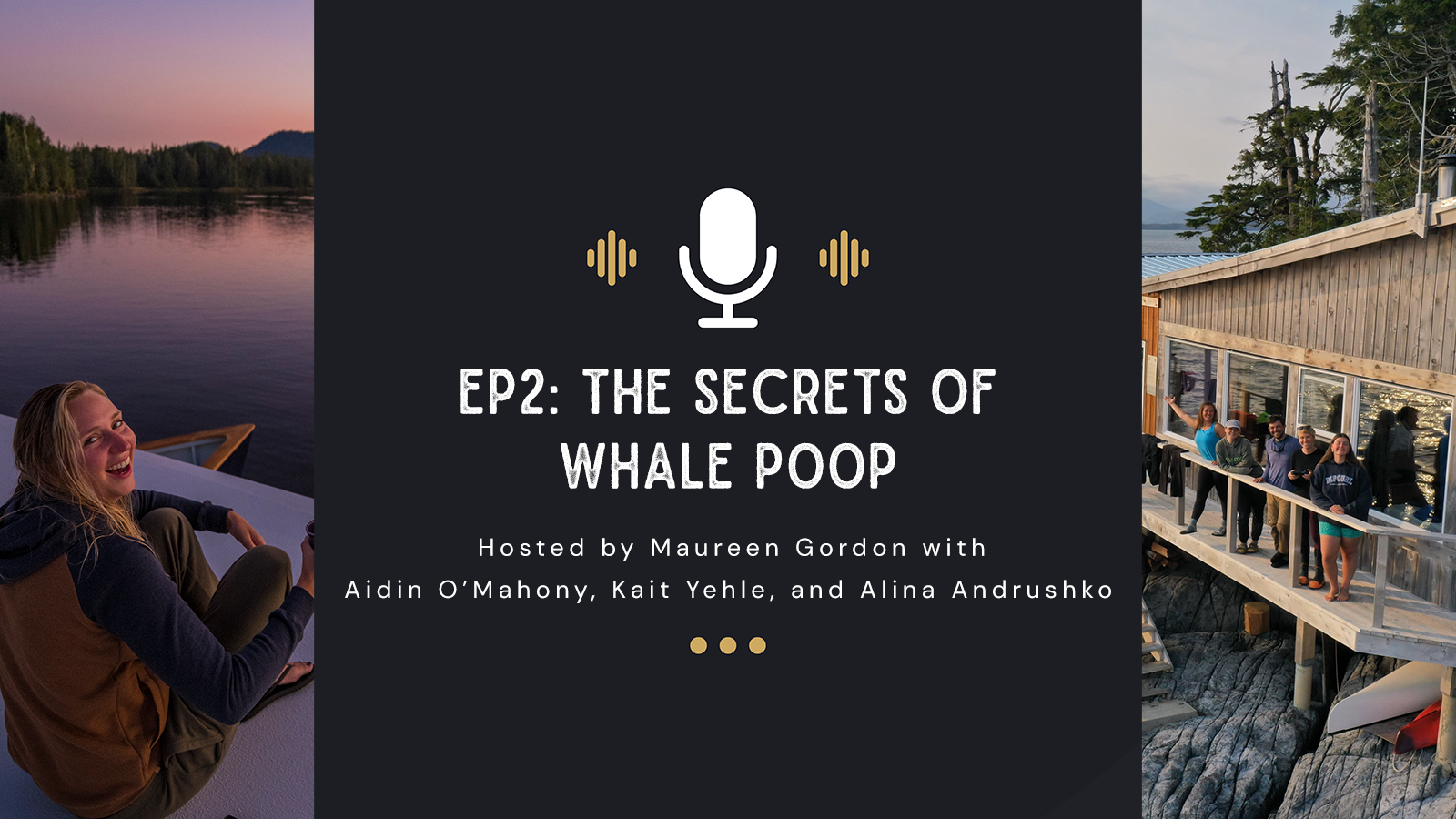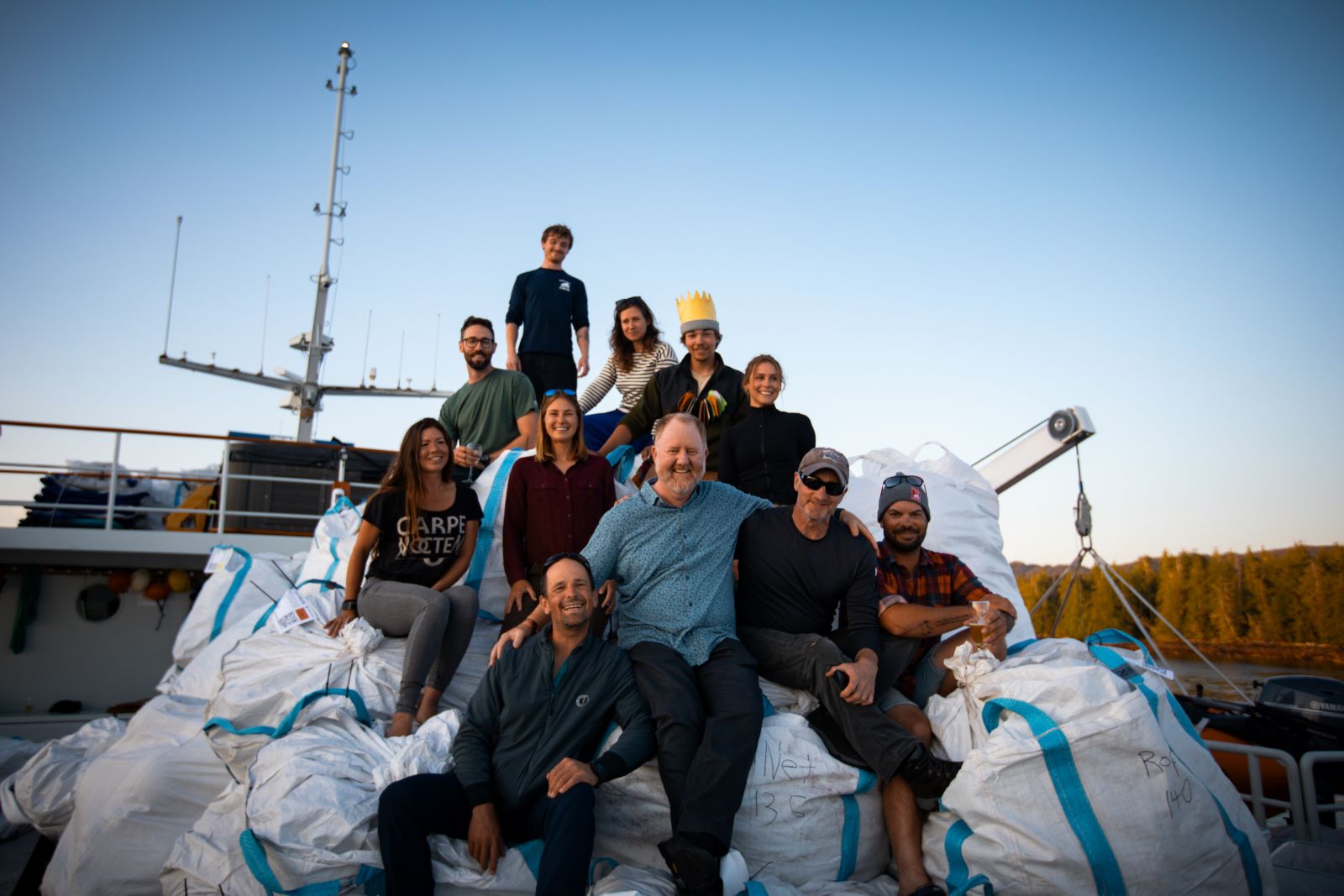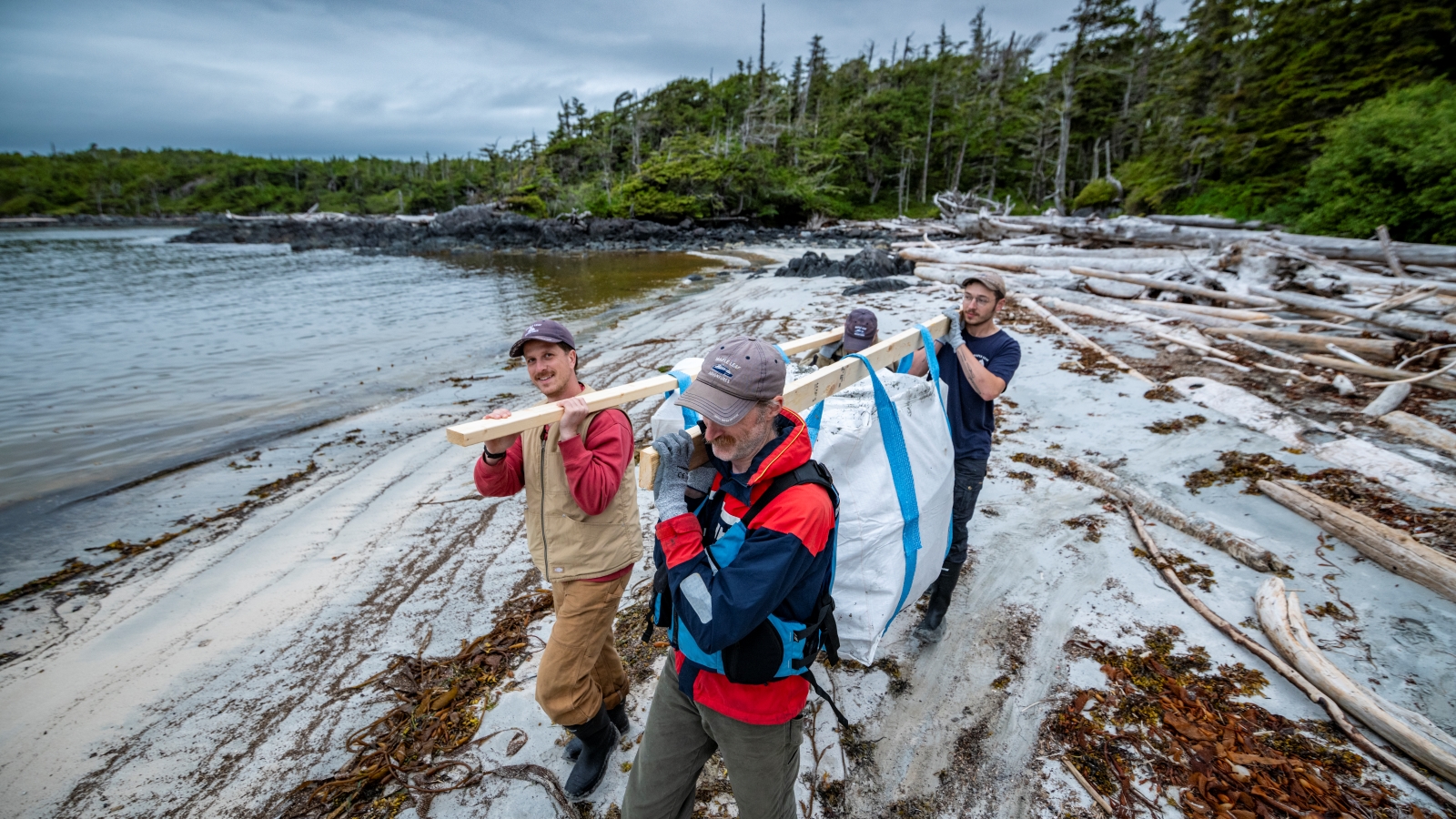There are few boats when we go, but there is traffic. The whale “rush hour” is one of many distractions you may find aboard. Photo: Jeff Reynolds.
Whales are some of the most fascinating creatures on the planet, and from May until late October, people across the world are drawn to the Pacific Northwest to catch a glimpse of them in their natural habitat.
Plankton and krill bloom, inspiring migrations the length of the continent as whales return here to feed. Compared to an afternoon whale watching tour, our weeklong summer adventures provide ample opportunity to witness whales in a variety of behaviors, whether that be the spectacle of humpback whales bubble-net feeding, or the playful breach of an orca calf.
However, did you know that you can do more than just observe whales while on a Maple Leaf Adventures trip? In a recent interview with Jackie Hildering, cofounder and humpback whale researcher with the Marine Education and Research Society (MERS), we discussed the importance of cataloging and identifying whales in the remote regions our expeditions take place.
Through taking ID photos while on a trip, guests can play an active role in supporting whale conservation efforts and contributing to the scientific understanding of these giants of the deep. Read on to learn more about how you can make a difference on your trip to the BC coast.
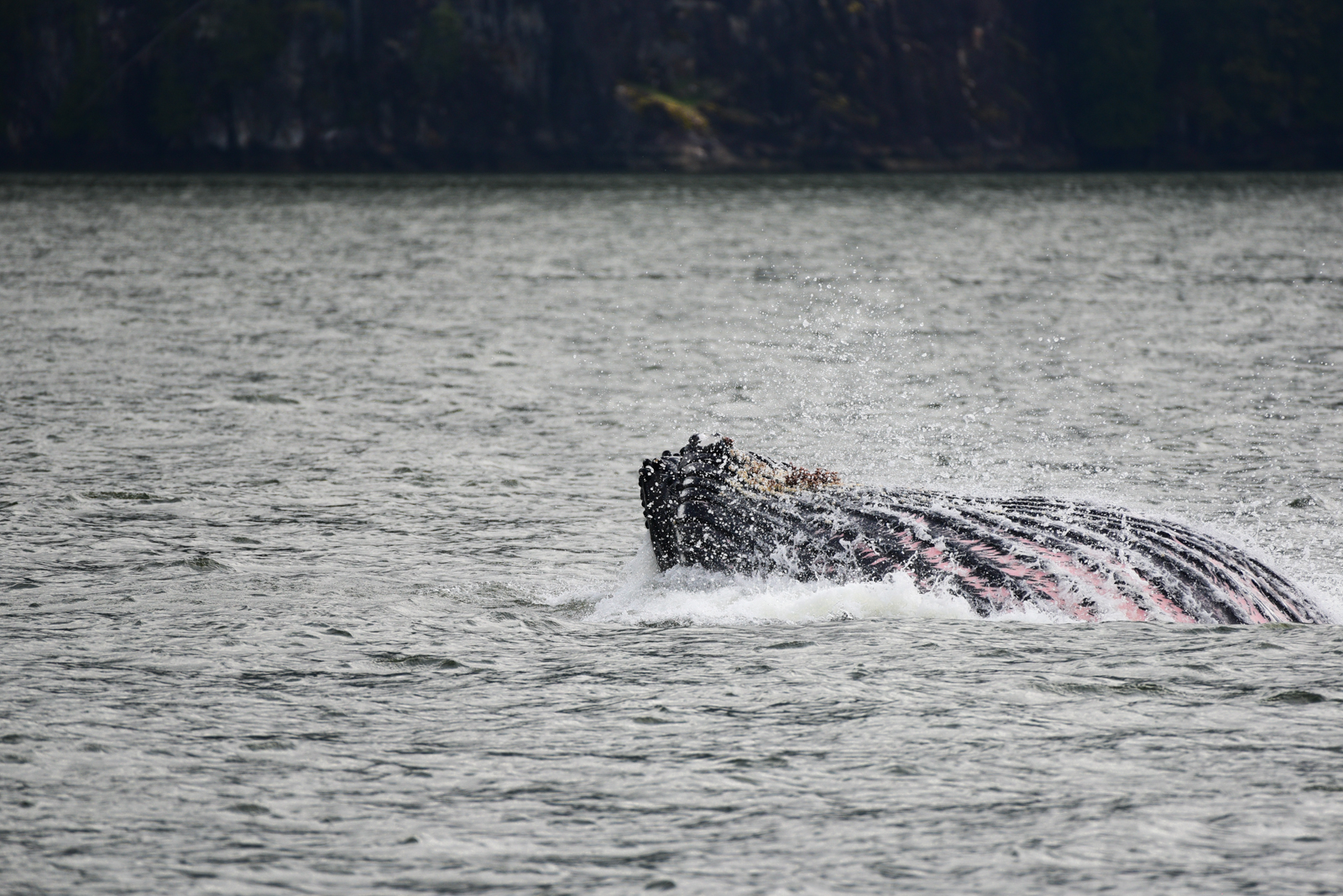
How is the recovery of humpbacks going in the Pacific Northwest?
Humpback were almost driven to extinction by whaling. There has been a remarkable comeback and they are protected under Canada’s Species at Risk Act as a species of special concern. Continued threats to humpbacks include climate change and increased overlap between human activities, leading to noise, collisions and entanglement. Collisions are a very real concern for human safety too.
How can visitors of the coast help with whale conservation while aboard?
There’s incredible value in collecting ID photos, certainly from areas where there is less data being collected, to gain better understanding of how the whales are using the coast.
These photos, taken by Maple Leaf Adventures crew or guests, are of great importance as they have revealed previously undocumented humpbacks, given insight into their feeding strategies, and helped support that humpbacks return to the same places year after year. These are puzzle pieces that add to the understanding of humpback whales on the coast, not just in British Columbia, but the entire North Pacific.
What kind of lessons do you hope Maple Leaf Adventures guests take home with them?
When people return home, everything from their voter choices to consumer choices, to how they speak about wildlife perpetuates how we relate to the natural world and see our place within it.
I hope people take away how lucky we are to have a second chance with wildlife and to learn from past mistakes. Whales are a powerful reminder of the capacity for human change. The last whaling station in British Columbia only closed in 1967. Orca were shot at. Today people hope to see them thriving in the wild. That is a very powerful reminder to people of how quickly we can change our actions when our values change. Even on the other side of the planet, our daily actions impact the welfare of whales, and all that depends on them.

About Jackie Hildering: Known by many as “the Marine Detective”, Jackie is a cofounder and humpback whale researcher with the Marine Education and Research Society (MERS). Jackie aims to make positive change through education and is a widely recognized marine naturalist and naturalist trainer. Calling North-eastern Vancouver Island home, Jackie is passionate about whales and their local habitat, the waters that surround her home.
In the regions where Maple Leaf Adventures operate trips, MERS are responsible for the cataloging of humpback (and minke) whales, which is essential science to understanding almost everything else about them: who they are, how they use areas, their life stories. You can get involved in this important science too! See our tips for submitting photos of humpback whales in BC
